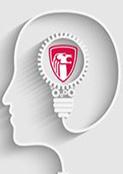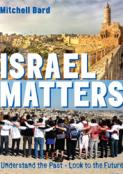- Home
- Play & Learn Home
- Online Enrichment
- Experience Modern Israel
- Israel It's Complicated
- Jewish and Me
- Jewish Holidays Jewish Values
- Jewish Values in Genesis and Jewish Values in Exodus
- Min Ha’aretz
- Our Place in the Universe
- Simply Seder
- The Prophets: Speaking Out for Justice
- Making T'filah Meaningful
- Make, Create, Celebrate
- Yom Haatzmaut Resources
- Hebrew Apps
- About The OLC
- What is the OLC?
- Introduction
- Get Started
- Resources
- OLC Content
- Parent Materials
- See My OLC Classes
- Store
Stephen Covey and Yom Kippur: A Text Study for the Busy Jewish Professional
Written by Behrman House Staff, 21 of September, 2016
Get Inspired by Fellow Educators
Big Idea for Jewish Learning #1 - Deep Connection to Our Sacred Texts
The High Holidays are traditionally times of reflection. We are called upon to take time to consider the year just ending and the one to come. Of course, those of us in the “business” of Judaism—educators, clergy, teachers, staff—may find ourselves asking, “And with all I have going on right now, when exactly is that reflection supposed to happen?” This time of year can feel so hectic for us that this particular moment may not feel at all like a good time to reflect. In fact, it might feel like the perfect time to have give in to the stress. Too often we get caught up in the urgent and critical task of helping others get this new year underway, and set our own needs for reflection aside.
As a result we may feel out of step with those reflective messages of the High Holidays.
Stephen Covey’s book, The 7 Habits of Highly Effective People, would advise us that now is actually the most important moment to take on the task of reflection and renewal. Precisely at this moment of craziness and busy-ness, of fretful anxiety, of long days of preparation, when it seems we must address the urgent at all costs, it is vital to ourselves as humans to keep our minds on the important. We should engage in the thinking, the commitment, and the actions that will help us truly renew ourselves for another year.
Covey calls it “sharpening the saw.” And of all the seven habits, he sees this as one that combines all the others in ways that create a synergistic effect—one that helps create a whole that is greater than the simple sum of its parts, and one that will help us throughout the year if we commit to its precepts. It seems fitting that in this moment of Jewish professional insanity we are urged by our tradition RIGHT NOW to pause and reflect.
Suppose you were to come upon someone in the woods, working feverishly to saw down a tree.
“You look exhausted,” you say; “How long have you been at this?”
“Over five hours—I’m beat!”
“Why don’t you take a break, and sharpen the saw—I’m sure it will go faster.”
“I don’t have time to sharpen the saw! I’m too busy sawing!”
Stephen Covey, The 7 Habits of Highly Effective People, p 299
So for our colleagues in the business of helping others get ready for the new year, here is a short text study especially for you. Perhaps you and your colleagues will take a few minutes together now to pause and reflect. This three-part text study can help you consider the ways Covey’s ideas and the themes of the high holidays go surprisingly well together, and how these ideas can help us all both right now and longer term. It can also be used in other groups, inclduing adult study groups and with teens.
Our personal experiences with liturgy and Judaism vary dramatically, so this text study uses some translations of liturgy that may not be the ones with which you are familiar. In this way perhaps you will be encouraged to think about these themes a little differently, and they will feel a little new even for those among us who are highly familiar with the language of specific prayers.
You can download the text study here.
L'shanah tovah!



